Mozambique: 87 schools closed in Chiure district
Mozambique: UNOPS chief cites support in Cabo Delgado as good partnership example – Watch
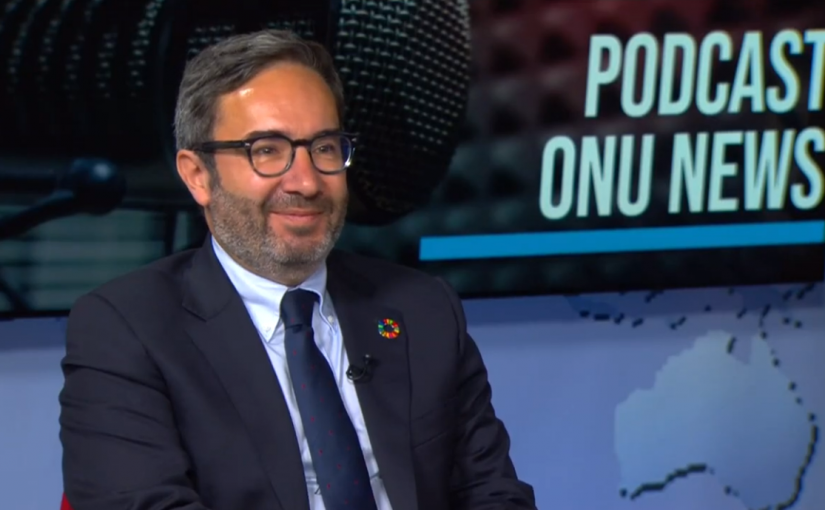
Screen grab: ONU News
The new executive director of the United Nations Office for Project Services (UNOPS), Jorge Moreira da Silva – a former Portuguese minister – on Wednesday cited support in Cabo Delgado, Mozambique, as an example of partnerships he wants to implement in his new position, uniting public and private sectors.
In an interview with UN News, Moreira da Silva explained that the “advantage of UNOPS is this triangulation between the public and the private” and that its mandate is to “increase the capacity of partners to implement the Sustainable Development Goals.”
“Unlike other agencies that have a programme or policy mandate, we don’t,” he said. “We are basically at the beck and call of the government. We are basically at the beck and call of developing countries, who design their projects, with the support of donors, and we are there to deliver.”
An example of this, he said, is the project in Cabo Delgado, a province in northern Mozambique, which in recent years has been the scene of violence and attacks by Islamist extremists, who he noted present “very serious security threats” that have given “rise to a huge flow of internal migrants.”
It is “a very unstable area that continues to have very high levels of instability,” Moreira da Silva said, recalling that the World Bank has allocated €200 million to UNOPS to oversee “a set of projects in Cabo Delgado that are both development and humanitarian.”
According to the UNOPS director, at the humanitarian level it is “support for forced migrants, for people who had to leave their homes to other parts of the country to flee war and conflict” to which are added funds to ensure quality of life and well-being, in an agreement with the Mozambique authorities.
“We do not design the policies; we are downstream in the realisation of the projects,” he said. “Funding is mobilised, but someone has to deliver. We materialise and involve the private sector, as a rule, we try to involve the local private sector.”
An example of this, he said, is the public purchases of these projects, which are mostly allocated to local suppliers, “because it is a way of mobilising the local economy.
“We are not only mobilised for public procurement or infrastructure,” Moreira da Silva stressed. “We want to create local contexts for business development.”
With regard to COP30, the international climate meeting to be hosted by Brazil, he said there is a “great expectation” in terms of its preparation of COP30, adding that UNOPS has “the greatest interest in contributing to this agenda” promoted by Brazil’s president Lula da Silva, particularly in the area of energy.
“There is a paradoxical situation” in this area, such as “access to energy and the fight against poverty and the decarbonisation of economies,” Moreira da Silva stressed, giving the example of the continent of Africa.
“Seven hundred million citizens in Africa do not have access to electricity [but] sixty percent of the world’s largest solar energy potential” is on that continent, he pointed out, identifying a paradox in the “continent with the greatest lack of access to energy, with the greatest potential for solar energy development and with a tiny share of global investment” in the energy sector.
In the case of small island states “such as Cabo Verde and Timor-Leste” – both Portuguese-language countries – these countries “are strongly threatened by the consequences of climate change [and] face economic, social, migratory problems in addition to the climate problem,” he said, adding that “it seems clear to me that, as far as infrastructure is concerned, there tends to be a big focus on island states and UNOPS is very much geared towards this” – not least because there is a direct correlation between these issues, within the framework of the Sustainable Development Goals (SDGs).
“If we do infrastructure right, decarbonising, making it fairer, more inclusive, more accessible, we can meet the SDGs,” he summarised. “If we continue with today’s continuity scenario, we will not fulfil the SDGs.”
Watch the UN News Podcast ( in Portuguese)


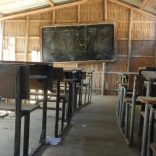
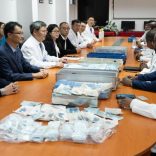


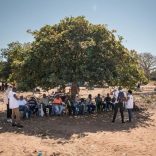
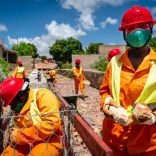




Leave a Reply
Be the First to Comment!
You must be logged in to post a comment.
You must be logged in to post a comment.